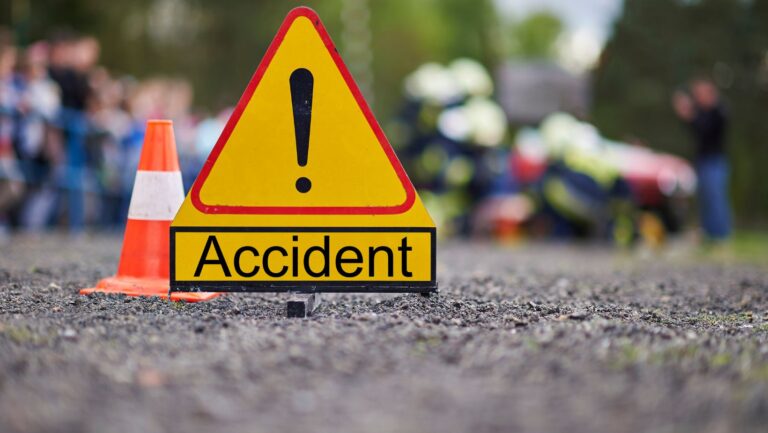Traveling to a new city is exciting, but dealing with an accident while using a rideshare service is anything but. Many tourists rely on Uber and Lyft to get around unfamiliar areas, assuming these services are safe and convenient. While most trips go smoothly, accidents can happen, leaving passengers confused about what to do next. Navigating insurance claims, medical expenses, and legal responsibilities in an unfamiliar place can quickly become overwhelming.
The rules surrounding rideshare accidents vary depending on location, making it important for visitors to understand their rights. Unlike personal car accidents, rideshare crashes involve multiple parties, including the driver, the company, and potentially other motorists. Determining who is responsible and which insurance applies can take time, delaying much-needed compensation. Tourists unfamiliar with local laws may struggle to get the help they need without knowing where to start.
When a rideshare accident occurs, insurance coverage depends on the driver’s status at the time of the crash. If the driver was offline, their personal insurance policy is responsible for covering damages. If they were actively waiting for a ride request, Uber or Lyft provides limited liability coverage, but medical expenses may not be fully covered. Full coverage, including up to $1 million in liability, only applies when a ride is in progress.
For passengers, this coverage can help with medical costs, but insurance claims can still be complicated. Injured riders may need to file claims against multiple policies, which can lead to delays and disputes. Some travelers assume their health insurance will cover everything, but out-of-network costs and deductibles may still apply. Understanding how rideshare insurance works before an accident happens can prevent financial surprises.
Filing a Claim as an Injured Tourist
Being in an accident is stressful enough, but for tourists, handling the aftermath in an unfamiliar place adds another layer of difficulty. Many visitors don’t know where to seek medical care or how to file a police report. Without the right documentation, filing an insurance claim can become even more challenging. The process is further complicated when multiple drivers or companies are involved.
After an accident, getting legal guidance can make a significant difference in the outcome of a claim. A San Antonio Uber accident lawyer can help tourists navigate the complexities of insurance coverage and liability disputes. Visitors unfamiliar with state laws may not realize they have the right to compensation for medical bills, lost time from their trip, and pain and suffering. Having an experienced advocate ensures that injured tourists receive fair treatment and don’t get pressured into accepting a low settlement.
What Tourists Should Do Immediately After a Crash
Taking the right steps after an accident can prevent future legal and financial headaches. First, checking for injuries and calling emergency services should be the top priority. Even minor injuries should be documented, as some conditions, like whiplash, may not show symptoms right away. Seeking medical attention ensures there is an official record of any injuries, which can be useful when filing a claim.
Collecting information is equally important, as rideshare companies often require detailed reports before processing claims. Passengers should take photos of the accident scene, request the driver’s information, and note key details such as the time and location. Reporting the crash to Uber or Lyft through the app creates an official record, which can be crucial in disputes. The more evidence gathered at the scene, the easier it will be to prove fault and receive compensation.
If a rideshare driver causes the accident, Uber or Lyft’s insurance policy will typically cover the damages. This includes injuries to passengers and damage to other vehicles involved in the crash. However, getting compensation isn’t always straightforward, as insurance companies may try to minimize payouts. Tourists who are unfamiliar with local laws may not realize they can push back against low offers.
Rideshare companies prioritize their own financial interests, often making the claims process more complicated than it should be. Even when liability is clear, delays and disputes can stretch out the process, leaving injured passengers frustrated. Seeking legal assistance can help ensure that all available coverage is used to its fullest potential. Understanding how these companies handle claims can prevent unnecessary setbacks in receiving compensation.
What if Another Driver is Responsible?
Not all rideshare accidents are caused by Uber or Lyft drivers. If another motorist is at fault, their insurance should cover damages. Unfortunately, some drivers are uninsured or have minimal coverage, making it difficult for tourists to recover costs. In these cases, Uber and Lyft offer uninsured motorist coverage, but only under specific conditions.
When an at-fault driver lacks sufficient coverage, passengers may need to explore multiple options to get compensated. Rideshare companies may provide additional support, but claims can take time to process. Knowing the limits of available coverage and how to file claims properly makes a big difference in the outcome. Tourists should be aware of these challenges so they can advocate for themselves if an accident occurs.
A car accident can completely disrupt a vacation, leaving tourists dealing with unexpected expenses and logistical headaches. Missed flights, canceled tours, and extended hotel stays can add financial strain on top of medical bills. While some travel insurance policies cover trip interruptions caused by accidents, many do not account for rideshare-related incidents. Checking policy details before a trip can help travelers understand their options.

Even minor injuries can turn into major inconveniences, affecting the rest of a traveler’s plans. Physical pain, emotional stress, and the hassle of dealing with insurance companies can overshadow the excitement of visiting a new city. Tourists who experience serious injuries may have to return home early, cutting their trip short. Knowing what to expect in the aftermath of an accident can help visitors prepare for potential setbacks.
Why Tourists Need to Know Their Rights
Many rideshare passengers assume they have no control over what happens after an accident. In reality, injured tourists have the right to seek compensation, regardless of whether they are local residents or just visiting. Insurance companies may try to take advantage of visitors’ lack of familiarity with local laws, offering settlements that do not fully cover medical expenses or other losses. Understanding the full scope of available options can prevent unfair treatment.
Being proactive about safety and insurance coverage can save travelers from unnecessary stress if an accident occurs. Learning about local laws, knowing what steps to take after a crash, and seeking professional guidance when needed can make a significant difference. Rideshare services may provide convenience, but they are not without risks. Taking a few extra precautions ensures that tourists are better prepared for unexpected situations on the road.




